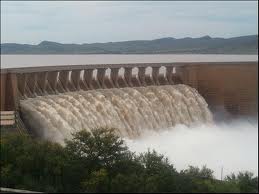Ethiopia has ambitious plans to build a $4.2 billion dam in the Benishangul-Gumuz region, 40 km from its borders with Sudan.
The dam is expected to provide 6.000 megawatts of electricity, enough for its population plus some excess which it will sell to neighbouring countries. Dubbed the Grand Ethiopian Renaissance Dam, it will be Africa’s biggest and will depend on water from the 6.700 km Nile River. In a recent report it is estimated that 86% of the Nile River’s water originates from Ethiopia and its independent experts believe that the dam will not affect water flows to Egypt – who fear that the dam will suck up water flows to the country, severely affecting its domestic consumption. In early June – then President Mohammed Morsi directed his foreign and irrigation minister to get more information from Ethiopian on the dam’s impact on water supply to Egypt. Many observers believe however that the countries will find a compromise point that will allow Ethiopia to complete the project by July 2017 and also ensure that there is no impact on water flows to Egypt’s population.Managing trans-boundary water resources is not always a complicated matter however. Since 1994 for example, Angola, Botswana and Namibia have successfully managed water supplies from the 1.100 km Okavango River which runs through all three countries. They signed an agreement to coordinate water sharing for sustainable use and even set up the Permanent Okavango Basin Water Commission to monitor the agreement.
African countries are making mixed progress towards the Millennium goal drinking water global target, which is to halve by 2015 the number of people without access to clean water. While North Africa has attained up to 92% water coverage, sub-Saharan Africa has only managed 63%, states the 2013 Millennium Development Goals report, with improvement mainly in urban areas. It is estimated that up to 40% of rural households still don’t have access to efficient water management. Source: www.allafrica.com






